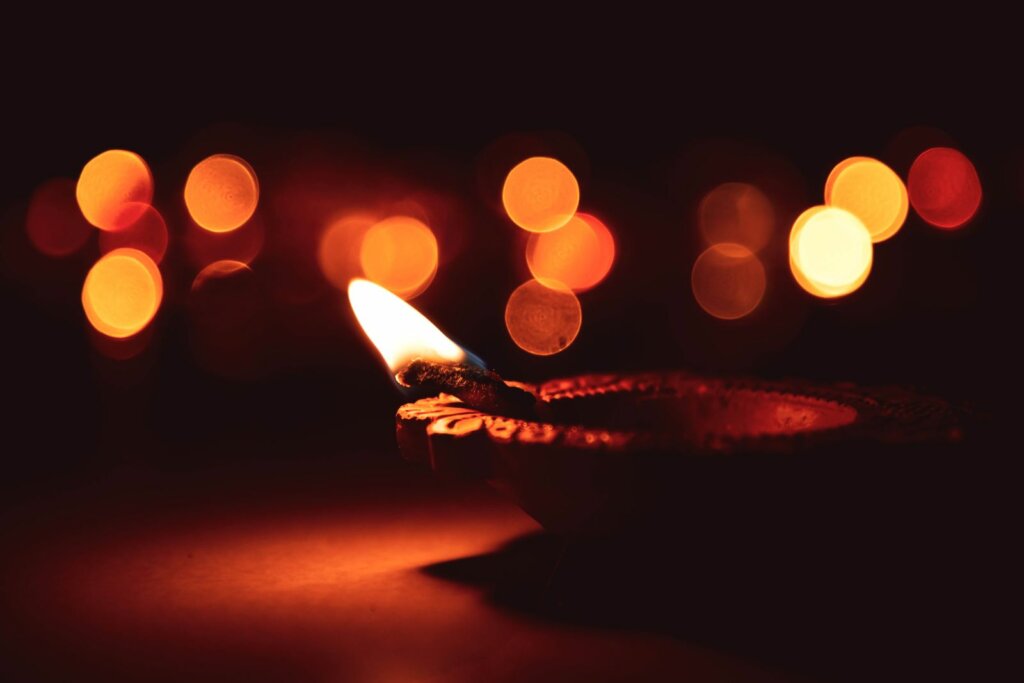Holding Onto Light
I always find Diipavali or Diwali to be an interesting holiday. The timing changes because it’s attached to the new moon in the month of Karttik, which is mid-October to mid-November. It’s dark, there’s no illumination. Symbolically, the day before Diipavali represents a time when it seems like light can’t win, won’t win. That evil will triumph and maintain its grip on society.
And then the holiday arrives. Diipavali signals to us that light is victorious, that good does triumph over evil and that knowledge eventually prevails. According to my spiritual teacher, the origins of Diwali are a war battle. A king attacked Lord Krsna’s capital city, Dwaraka, and the warrior Satyabhámá, a woman, I might add, launched a fierce counterattack against the invading forces. The army was defeated and the whole city was joyful. Residents celebrated by lighting fourteen candles and on the following evening worshipped Satyabhámá with festivities and elaborate lights.

We can be the light. Photo by wilson mathew on Unsplash
That’s exactly what diipavali means. The word comes from dīpa, which means lamp or light, and āvali, which means a row, a range, a continuous line, a series. So we’re celebrating a row of lamps both literally and metaphorically. You might notice Diipavali is similar to Hanukkah, another holiday that involves lights in a row. And just like modern Jews celebrating Hanukkah, Diwali is no longer about a war battle. It represents a symbolic battle where we remember the flame of one lamp lights up countless others both literally and metaphorically.
I’ve had moments recently where I want to burrow under the covers and completely withdraw from the world. I don’t enjoy what’s happening nor the vitriol it’s inspiring. Everything seems so dark and then I remember a quote from Rumi who said, “If everything around seems dark, look again, you may be the light.”
I think that’s what Diipavali reminds us. It’s not only that in the end good will triumph, it’s also the recognition we have a part to play in that victory. When we spread our light, our goodness, we light up other people. And together, we create a row of lights such that darkness retreats. We may be few in number but that doesn’t mean we’re any less powerful.
To paraphrase my spiritual teacher, the strength of five good people is more than the united strength of a hundred immoral people. It also echoes the famous Margaret Mead quote: “Never doubt that a small group of thoughtful, committed citizens can change the world; indeed, it’s the only thing that ever has.”
A lot of little lights can conquer darkness. And this is something we must do over and over again. Unlike a single war battle, Diipavali encourages us to hold onto light, to keep shining, and to remember that one by one by one our actions add up to something bright.
I dream of a world where we have faith that good always wins in the end. A world where we remember light drives out darkness. A world where we understand that we all have a part to play in making the world a better place. A world where we recognize that our light lights up others. A world where we hold onto that light and create a better world for everyone.
Another world is not only possible, it’s probable.

